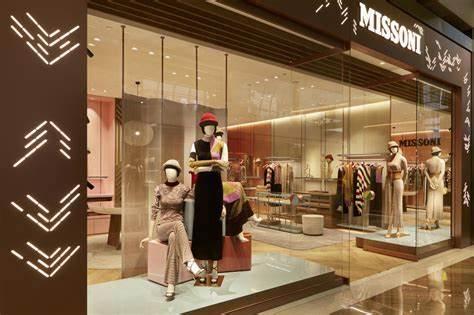MILAN, July 14 (Class Editori) — Consistent with the urban city strategy of its new CEO, Livio Proli, Missoni has doubled its retail presence in China with an opening in Chengdu, capital of Sichuan, one of the largest urban concentrations in the country with more than 16 million inhabitants.
The opening of the flagship store —located in the Chengdu Yintai Center in99, a renowned luxury shopping center owned by real estate and investment Group Yintai— follows the one in Shanghai in November 2021, bringing the number of Missoni monobrand stores in the Asian country to two.
Just today, a new report by the Boston Consulting Group and Comité Colbert remarked that, in the next four years, two-thirds of the growth of fashion and luxury companies will take place outside Europe and the US, with China leading the way.
Covering a 185-square-meter area, with a design by Milan-based BBA Studio, the new store of Missoni —which is expected to reach a turnover of 110 million euros this year and is 42%-owned by Maurizio Tamagnini's Fondo FSI— furnished with complements from the brand's home line, will debut with the display of the brand's spring-summer 2022 womenswear, menswear, beachwear and home collections. Missoni's identity is revealed right from the façade, which is distinguished by the characteristic zig-zag pattern of the Maison's fabrics with a clever use of colors, vertical metal elements and cuts of light giving dynamism.
Inside there are softly connected walls made of metal strips and pressed cellulose, with the idea of creating a continuous space in which the customer's eye can move freely. The graphic texture of the knitwear, which became a signature of the Missoni style, can be found all around the perimeter, while the zig-zag pattern can be read through the three-dimensionality of the handcrafted upholstery, in which scraps of thickness are highlighted by the skillful use of light.
Great attention was also paid to the search for sustainable materials, in line with the brand’s principles, using ecological products with a circular life cycle, fitting within the green economy debate, such as Milleforma, a composite material based on cotton linters and clay used specifically to build the walls.
(Source:Class Editori)
Notice: No person, organization and/or company shall disseminate or broadcast the above article on Xinhua Silk Road website without prior permission by Xinhua Silk Road.




 A single purchase
A single purchase









